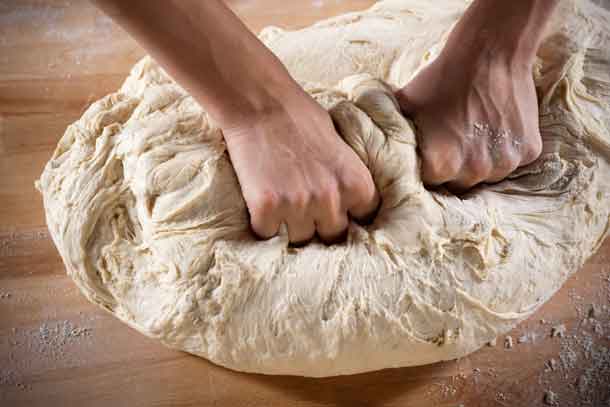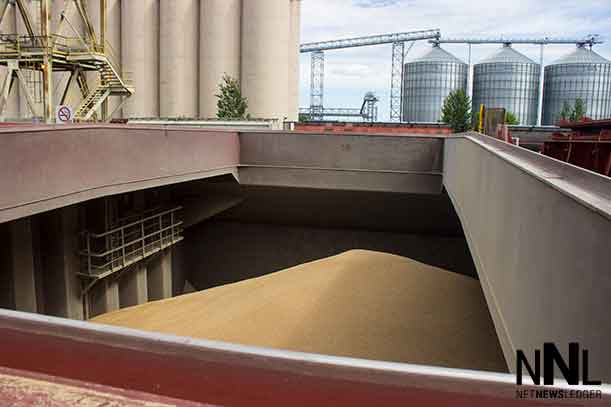As Russia’s invasion of Ukraine pushes up global wheat prices, food-poor countries in the Middle East face higher prices for everyday staples
* Ukraine and Russia are key Middle East wheat suppliers
* From Yemen to Egypt, food-poor nations fear price surge
* Millions more seen at risk of food poverty in the region
By Maya Gebeily and Menna A. Farouk
ADEN/CAIRO – (Thomson Reuters Foundation) – The war in Ukraine may be unfolding several thousand miles away, but 32-year-old Ilham fears her family will feel its consequences on their dinner table in Yemen.
Conflict between Ukraine and Russia, which provide more than a quarter of the world’s wheat exports, has sent global prices to a 13-year high – causing alarm in Middle Eastern nations that rely on imports for staples from flatbreads to couscous.
“It’s already too expensive for us, so I can’t imagine what will happen when the prices jump even further,” llham told the Thomson Reuters Foundation, asking not to give her full name.
Elsewhere in the food-poor region, shoppers in Lebanon tried to stock up on bread early to avoid higher prices, while bakers in Egypt said they were already feeling the pinch of higher flour costs.
Across the Middle East and North Africa, fallout on food prices from the war in Ukraine could drive millions more into “food poverty”, said the WFP’s senior regional spokesperson, Abeer Etefa.
The region is particularly vulnerable to rises in the cost of basic foods due to inadequate local production and high rates of poverty, with anger over food costs fuelling the “Arab Spring” protests in 2011.
Yemen, which is almost entirely dependent on food imports, buys at least 27% of its wheat from Ukraine and 8% from Russia, a senior financial official and a wheat importer said, asking not to be named.
Seven years of conflict have battered Yemen’s economy, hitting employment and more than doubling food prices – leaving more than half of the nation’s 30 million people hungry, according to the International Rescue Committee.
Late last year, funding shortfalls forced the World Food Programme (WFP) to shrink assistance to eight million Yemenis, risking a “looming hunger catastrophe”.
The prospect of a further surge in international wheat prices means Yemenis could be more vulnerable than ever, said Afrah Al-Zouba, who heads a Yemeni nonprofit working on improving aid access.
“Of course, this will put people in danger,” Zouba said.
“It’s never been a problem of food availability. It’s a problem of affordability.”
‘FOOD POVERTY’
Egypt, often the world’s largest wheat importer, brings in 90% of its wheat from Ukraine and Russia, and government officials have been closely watching the conflict with an eye on local food prices.
A third of Egypt’s 100 million people were living below the poverty line even before the COVID-19 pandemic struck, according to the World Bank, and the state sets caps on bread prices to make it affordable.

But as international prices surge to their highest level since 2008, Egyptian Prime Minister Moustafa Madbouly said on Feb. 16 that the government will raise the price of a subsidised loaf of bread for the first time since the 1980s.
“I confirm that (the rise) will be applied, but in a way through which we ensure that the neediest people are not harmed,” Madbouly told a news conference, without providing further details.
Egyptian bakers were already feeling the sting of more expensive flour and cooking oil supplies. Russia and Ukraine are also major suppliers of sunflower oil.
Hussein Bagoury, 33, who owns a bakery in the east of the capital, Cairo, said his business had been hurt by a 50% jump in flour prices and a smaller spike in cooking oil prices.
“This is making us lose a lot of money because our costs increased,” he said.
A STRUGGLE AHEAD
The prospect of a further jump in food prices spooked shoppers in Lebanon, where a deep economic crisis and sharp currency devaluation that began in 2019 has already put many basic goods out of reach for millions of people.
Some tried to stock up at the weekend in anticipation that prices would go up in the days ahead.
“I went to several bakeries and it’s almost impossible to get more than one bread bundle,” said Fady Moussa, a resident of the capital, Beirut, who was out trying to buy bread on Sunday.
“It feels like Lebanon is the one at war,” he said.

Economy Minister Amin Salam said at a Feb. 25 news conference that the country would explore alternative supply options due to the Russian invasion of Ukraine, which provides about 60% of Lebanon’s wheat imports.
He said the country only had enough stocks to meet a month’s requirements.
A devastating August 2020 explosion at Beirut port also obliterated an adjacent grain silo complex – the country’s largest storage space for wheat and other grains.
Though wheat imports are subsidised and the government caps bread prices, bread has already become a luxury for some Lebanese.
Bakeries set rations on how many loaves a customer can buy, and in some cases set a separate “black market” rate for extra loaves.
“We will either have no wheat at all and if we do, the prices will be unaffordable,” said Ghassan Abou Habib, who owns one of the country’s main bakery chains, Wooden Bakery.
“It’s going to be a struggle.”
(Reporting by Maya Gebeily in Aden, Tala Ramadan in Beirut and Menna A. Farouk in Cairo; Editing by Helen Popper. Credit the Thomson Reuters Foundation)








